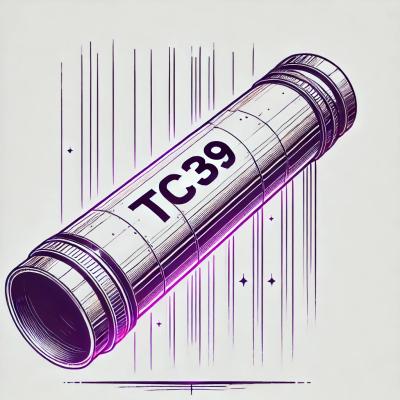
Security News
NVD Quietly Sweeps 100K+ CVEs Into a “Deferred” Black Hole
NVD now marks all pre-2018 CVEs as "Deferred," signaling it will no longer enrich older vulnerabilities, further eroding trust in its data.
.. image:: https://github.com/arielevs/pybump/workflows/Python%20package/badge.svg :alt: Build :target: https://pypi.org/project/pybump/
.. image:: https://codecov.io/gh/ArieLevs/PyBump/branch/master/graph/badge.svg?token=P3AZKGX5IR :alt: Code Coverage :target: https://codecov.io/gh/ArieLevs/PyBump
.. image:: https://img.shields.io/pypi/v/pybump.svg :alt: Version :target: https://pypi.org/project/pybump/
.. image:: https://img.shields.io/pypi/l/pybump.svg?colorB=blue :alt: License :target: https://pypi.org/project/pybump/
.. image:: https://img.shields.io/pypi/pyversions/pybump.svg :alt: Python Version :target: https://pypi.org/project/pybump/
A simple Python script for updating the version in Kubernetes Helm Chart.yaml,
VERSION, and pyproject.toml/setup.py files.
Semantic Versioning 2.0.0 <https://github.com/semver/semver/blob/master/semver.md>_.v1.5.4-beta2)... image:: ./docs/pybump-recording.gif
To install pybump, run:
.. code-block:: bash
pip install pybump
To bump the version:
.. code-block:: bash
pybump bump [-h] --file PATH_TO_CHART.YAML --level {major,minor,patch} [--quiet]
To set an explicit version or automatically update release metadata:
.. code-block:: bash
pybump set --file PATH_TO_CHART.YAML --set-version X.Y.Z [--quiet]
The auto flag is primarily intended for CI/CD pipelines, such as pull request workflows:
.. code-block:: bash
pybump set --file PATH_TO_CHART.YAML --auto [--quiet]
When using --auto, pybump appends the Git commit hash as release metadata to the version.
--auto flag can be risky, as it may detect a Git repository unintentionally.
Ensure that the target file is part of the correct repository before running this command.To get the current version:
.. code-block:: bash
pybump get --file PATH_TO_CHART.YAML
appVersionTo bump, get, or set the appVersion field in a Helm chart, use the --app-version flag:
.. code-block:: bash
pybump bump [-h] --file PATH_TO_CHART.YAML --level {major,minor,patch} [--quiet] [--app-version]
.. note::
The ``--app-version`` flag applies only to Helm `Chart.yaml` files and has no effect on other file types.
A simple Jenkins CI pipeline (using the Kubernetes plugin) that utilizes the
set --file setup.py --auto option:
.. code-block:: java
String label = "test-bump-ci-runner"
podTemplate(
label: label,
containers: [
containerTemplate(
name: 'pybump',
image: "arielev/pybump:1.10.2",
ttyEnabled: true,
command: 'sleep',
args: '1d'
),
containerTemplate(
name: 'jnlp',
image: 'jenkins/inbound-agent:jdk11',
ttyEnabled: true
)
]
) {
node(label) {
timeout(time: 10, unit: 'MINUTES') {
ansiColor('xterm') {
String version = ""
container('jnlp') {
git credentialsId: "credentials_id_here", url: "https://github.com/arielevs/pybump"
}
container('pybump') {
version = sh(
script: "pybump set --file setup.py --auto",
returnStdout: true
).trim()
}
println(version)
}
}
}
}
Case: version: 0.0.1
.. code-block:: bash
pybump bump --file Chart.yaml --level patch
Result: Version updated to 0.0.2.
Case: version: 0.1.4-alpha+meta.data
.. code-block:: bash
pybump bump --file Chart.yaml --level minor
Result: Version updated to 0.2.0-alpha+meta.data.
Case: version: v0.0.3
.. code-block:: bash
pybump bump --file Chart.yaml --level major
Result: Version updated to v1.0.0.
Case: version: 0.0.1+some-metadata
.. code-block:: bash
pybump set --file Chart.yaml --set-version 1.4.0
Result: Version updated to 1.4.0+metadata-here.
Case: version: v7.0.2
.. code-block:: bash
pybump set --file setup.py --auto
Result: Version updated to v7.0.2-5a51e0e1d9894d3c5d4201619f10be242320cb59.
Case: appVersion: 2.3.2
.. code-block:: bash
pybump bump --file Chart.yaml --level patch --app-version
Result: appVersion updated to 2.3.3.
Case: version: 1.0.13
.. code-block:: bash
pybump get --file Chart.yaml
Result: Returns 1.0.13.
Case: version: 1.0.13+some-metadata
.. code-block:: bash
pybump get --file Chart.yaml --release
Result: Returns some.
To run pybump within a container:
.. code-block:: bash
docker run --rm --volume $(pwd):/tmp -t arielev/pybump set --file /tmp/setup.py --auto
FAQs
Python version bumper
We found that pybump demonstrated a healthy version release cadence and project activity because the last version was released less than a year ago. It has 1 open source maintainer collaborating on the project.
Did you know?

Socket for GitHub automatically highlights issues in each pull request and monitors the health of all your open source dependencies. Discover the contents of your packages and block harmful activity before you install or update your dependencies.

Security News
NVD now marks all pre-2018 CVEs as "Deferred," signaling it will no longer enrich older vulnerabilities, further eroding trust in its data.

Research
Security News
Lazarus-linked threat actors expand their npm malware campaign with new RAT loaders, hex obfuscation, and over 5,600 downloads across 11 packages.

Security News
Safari 18.4 adds support for Iterator Helpers and two other TC39 JavaScript features, bringing full cross-browser coverage to key parts of the ECMAScript spec.